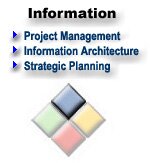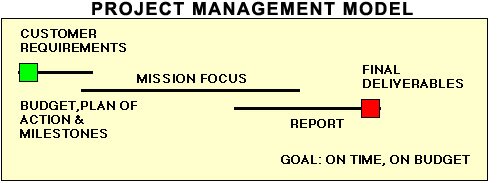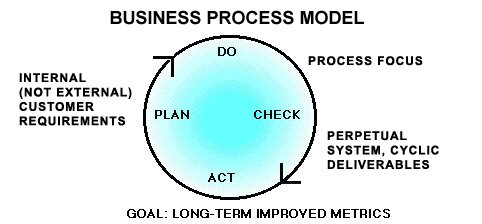|
 Information > Information Overview Information > Information Overview
Information Overview
|
"The paradox of our times is that we are
inundated by information yet starved for knowledge."
William R. Brody, President — Johns Hopkins University
|
In this section we will look at three important ways that Information provides a starting place for applying the Cognitive Design Process to support the goals of organizational development:
|

|
- Project Management — provides context and method for planning and building solutions. It discusses key issues of information flow required for an implementation team. Project Mgt provides an answer to the key question of "how" information-rich environments can be constructed.
- Information Architecture — provides an understanding of the essential needs in constructing meaningful content. Information Architecture provides an answer to the key question of "what" — that is, the definition of information structure and flow to an audience, whether for KM, E-Learning or Performance Support. These issues include message, topic organization, accessibility, navigation, and usability.
- Strategic Planning — provides a discussion of the essential information flow required by an enterprise in order to be centered in vision, mission, and values, and to determine priority objectives and action plans. Strategic Planning answers the key question of "why" as the basis for creating information-rich environments.
|
Each of the major sections of this web site presents the essential role of Information in building performance solutions that support organizational development. Click on Knowledge Management, E-Learning and Performance Support for each of these discussions.
The section on "The Process Paradigm" provides an overview of how the Cognitive Design Process offers:
(1) a mental model for planning, evaluating and building performance environments;
(2) systematic use of the elements of Information, Instruction, Media and Delivery for analysis, design, development and deployment.
|
|
Business Process & Project Mgt 
The distinction between Project Management and Business Process Management is illustrated by the following graphics. Project management requires an information flow that supports a timeline sequence of tasks leading to a Final Deliverables which must meet quality, time and cost criteria. The section on Project Management describes this process in detail.

Business Process Management requires an information flow which supports perpetual cycles of productivity — with ongoing and regularly delivered end products. It is process focused, internally governed, and has a goal of long-term improved metrics meeting quality, time and cost criteria. Business processes will be successful only if its internal requirements, workflow steps, and deliverables satisfy customer needs. The section on Strategic Planning describes a framework for designing and monitoring effective business processes.

The section on Information Architecture provides a framework and tools for building effective information flow and presentation.

|



